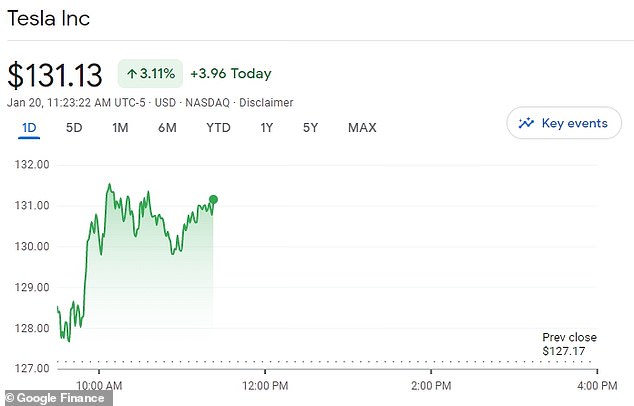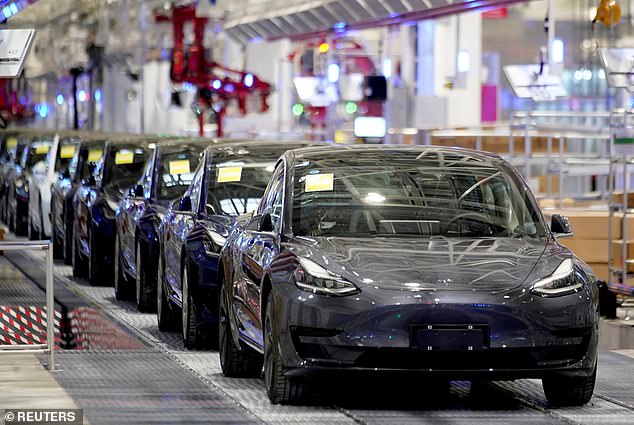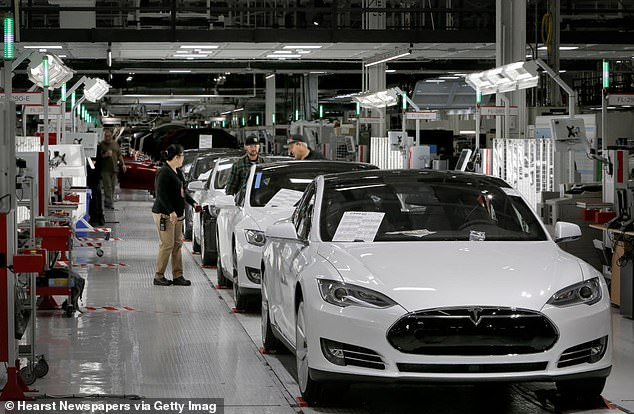Elon Musk sold nearly $3.6 billion worth of Tesla shares before the company said it missed delivery targets
>
Tesla CEO Elon Musk sold nearly $3.6 billion worth of shares just three weeks before the electric car company announced it had missed its delivery targets.
Musk had netted nearly 22 million of his 426 million shares between December 12-14, 2022, as Tesla was projected to be one of the worst performing stocks of the year, the Wall Street Journal reports.
While the end of 2022 saw a small rally for the company’s shares, the shares tumbled further when the market opened on January 3 following the company’s announcement that delivery goals fell short of nearly 22,000 cars. .
Given the timing of the deal, Donald Langevoort, another Georgetown University professor of securities law, called for more transparency.
‘Is he suspicious? Yes. Is it entirely possible that there are other explanations? Of course,” Langevoort told the WSJ. “But that’s what the enforcement process is about.”
Experts are calling for more transparency on why Elon Musk (pictured) sold 22 million shares just weeks before the disappointing sales figures were released.

Tesla shares have rebounded after a disastrous start to the year, with shares rising 3.11 percent on Friday.
Along with the shares sold in December, Musk has sold more than $39 billion worth of shares since his peak in November 2021, most of which was used to fund his $44 billion acquisition of Twitter.
Even after all the sales, Musk still owns 426.6 million shares of Tesla, giving him a 13.4 percent ownership position in his company.
Recent sales in December amounted to more than a third of the shares he sold in 2022, and the timing raised questions about insider trading.
Insider trading refers to the illegal practice of trading stocks through confidential information. In Musk’s case, he would be selling 22 million shares upon learning of the disappointing sales figures before it became public knowledge.
“The question here is what did he know and what did the market expect when he sold,” James Cox, a professor of securities law at Duke University, told the WSJ. That is a critical moment.
“This should be of great interest to the SEC,” he added.
While the SEC prohibits insider trading, there are several exceptions, one of which Musk has used before. By filing for a pre-arranged trading schedule with the SEC, known as a 10b5-1 plan, corporate members have greater freedom to sell and buy their company’s stock.
Although the December transaction was filed without a set schedule, SEC rules at the time meant that it did not have to disclose whether or not it was actually using the plan.
Tesla did not immediately respond to DailyMail.com’s request for comment. The SEC declined to comment.

Tesla planned to run a reduced production schedule in January at its Shanghai plant (pictured) amid a rising number of COVID-19 infections in the country.
Musk’s December trade came as the company’s shares fell 42 percent for that month alone, ending 2022 down 69 percent.
The drop in Tesla shares, the lowest in two years, came as Reuters reported that the electric car company halted production at its Shanghai Gigafactory.
Meanwhile, a Reuters analysis showed that prices for used Tesla cars were falling faster than those of other automakers, weighing on demand for the company’s new vehicles rolling off the assembly line. .
According to the latest delivery figures released by the automaker, the company delivered an impressive 1.3 million vehicles last year, an increase of more than 40 percent over the previous year.
However, the company’s fourth-quarter numbers still fell short of Wall Street’s expectations.

The data, which serves as the closest approximation of the company’s sales, illustrates that while it was successful in the early stages of 2022 and the year before, Tesla’s growth is slowing.
In the past three months, Tesla delivered 405,278 vehicles, the data shows, well below the median estimate of 431,000 set by analysts.
The data, which serves as the closest approximation of the company’s sales, illustrates that while it was successful in the early stages of 2022 and the year before, Tesla’s pace of growth is slowing.
Last month, Musk said he would not sell any more Tesla shares for at least 18 months in an apparent attempt to comfort shareholders who have seen the shares drop nearly half in value since the CEO bought Twitter in October.
“I won’t sell any shares for 18 to 24 months,” Musk said.
